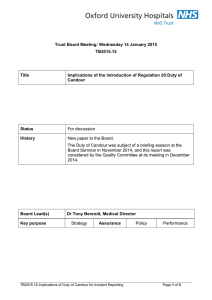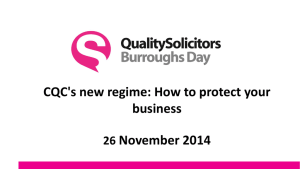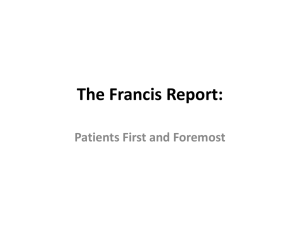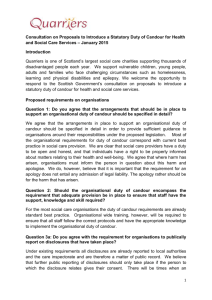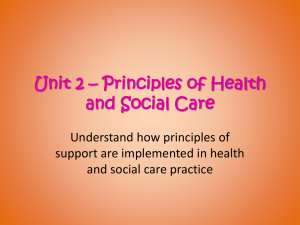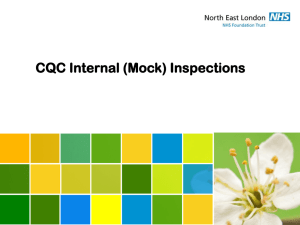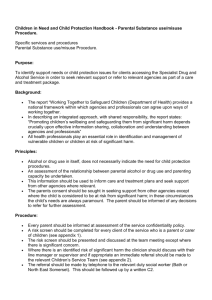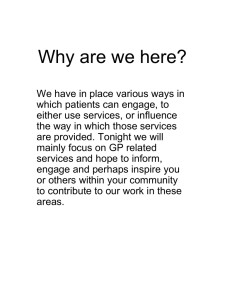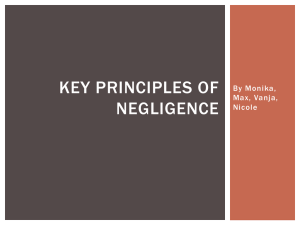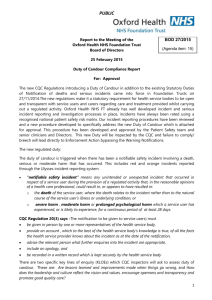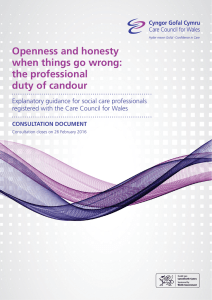Duty of Candour fact sheet - Walsall Healthcare NHS Trust
advertisement
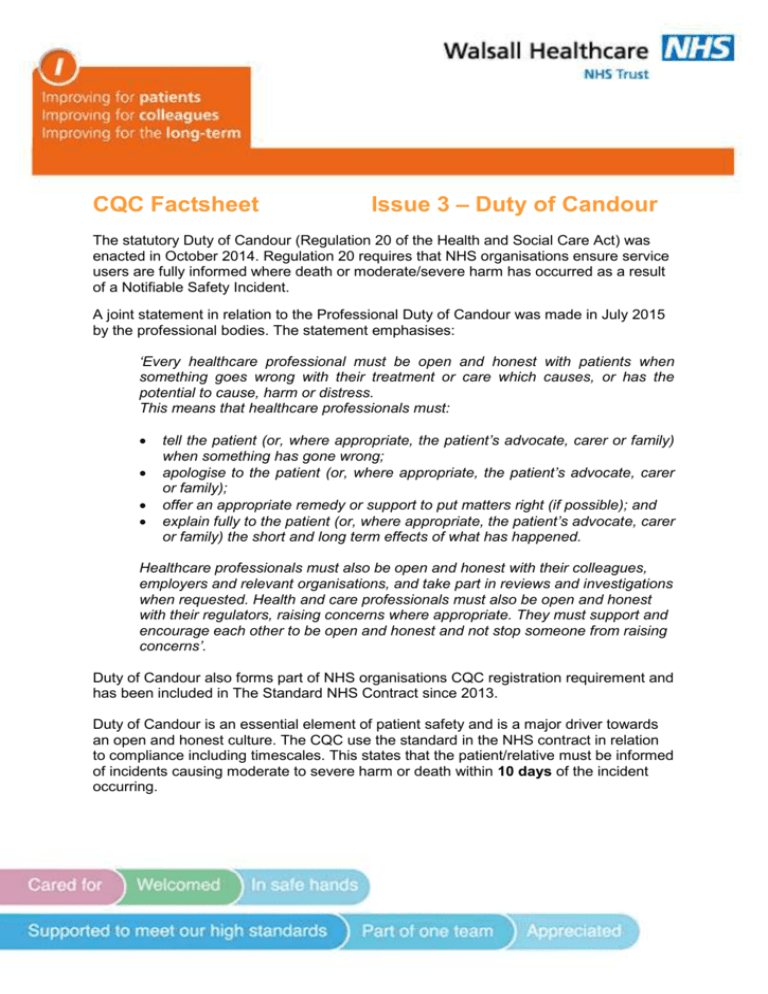
CQC Factsheet Issue 3 – Duty of Candour The statutory Duty of Candour (Regulation 20 of the Health and Social Care Act) was enacted in October 2014. Regulation 20 requires that NHS organisations ensure service users are fully informed where death or moderate/severe harm has occurred as a result of a Notifiable Safety Incident. A joint statement in relation to the Professional Duty of Candour was made in July 2015 by the professional bodies. The statement emphasises: ‘Every healthcare professional must be open and honest with patients when something goes wrong with their treatment or care which causes, or has the potential to cause, harm or distress. This means that healthcare professionals must: tell the patient (or, where appropriate, the patient’s advocate, carer or family) when something has gone wrong; apologise to the patient (or, where appropriate, the patient’s advocate, carer or family); offer an appropriate remedy or support to put matters right (if possible); and explain fully to the patient (or, where appropriate, the patient’s advocate, carer or family) the short and long term effects of what has happened. Healthcare professionals must also be open and honest with their colleagues, employers and relevant organisations, and take part in reviews and investigations when requested. Health and care professionals must also be open and honest with their regulators, raising concerns where appropriate. They must support and encourage each other to be open and honest and not stop someone from raising concerns’. Duty of Candour also forms part of NHS organisations CQC registration requirement and has been included in The Standard NHS Contract since 2013. Duty of Candour is an essential element of patient safety and is a major driver towards an open and honest culture. The CQC use the standard in the NHS contract in relation to compliance including timescales. This states that the patient/relative must be informed of incidents causing moderate to severe harm or death within 10 days of the incident occurring. What does this mean for you? If a Notifiable Safety Incident occurs, the patient or his/her next of kin (in the event of the death of the patient or a lack of capacity) must be informed that the incident has occurred. Wherever possible, this should be carried out by the responsible clinician in person and must:a) Give an account of known facts b) Advise about investigations that are being carried out c) Include an apology d) Be recorded in writing Following the face to face meeting, a letter must be sent to the relevant person. This will be co-ordinated by the Patient Safety/Patient Relations team. What is a Notifiable Safety Incident? The Regulation states:‘any unintended or unexpected event/incident that in the reasonable opinion of a healthcare professional could result in or appears to have resulted in: a) The death of a service user where the death relates directly to the incident or b) Severe harm, moderate harm or prolonged psychological harm to the service user’ How is harm defined? Regulation 20 states:a) Severe harm is defined as ‘a permanent lessening of bodily, sensory, motor physiological or intellectual functions, including removal of the wrong limb or organ or brain damage that is directly related to the incident b) Moderate harm is defined as a moderate increase in treatment, significant but not permanent harm, or prolonged psychological harm A moderate increase in treatment is defined in the Regulation as ‘unplanned return to theatre, unplanned readmission, a prolonged episode of care, extra time in hospital or as an outpatient, cancelling of treatment or transfer to another treatment area (such as intensive care)’. The increase in treatment would be directly related to a notifiable safety incident (see below). As soon as it is confirmed that Duty of Candour applies, then arrangements will be made for the initial face to face meeting. Support for Duty of Candour Dr Louise Holland (Associate Medical Director) has taken responsibility as advisor on Duty of Candour and the Patient Safety Team can also offer advice.Training sessions are to be held in July, August and September, please contact the Learning Centre to book a place. Who to contact All information about our CQC inspection will be available on the CQC intranet with regular updates in Trust Connect, our internal news bulletin. There will also be a range of information and materials to support you and your colleagues, as we approach this inspection. For more information please visit the CQC Forum, click here or to ask a question please email us click here.
